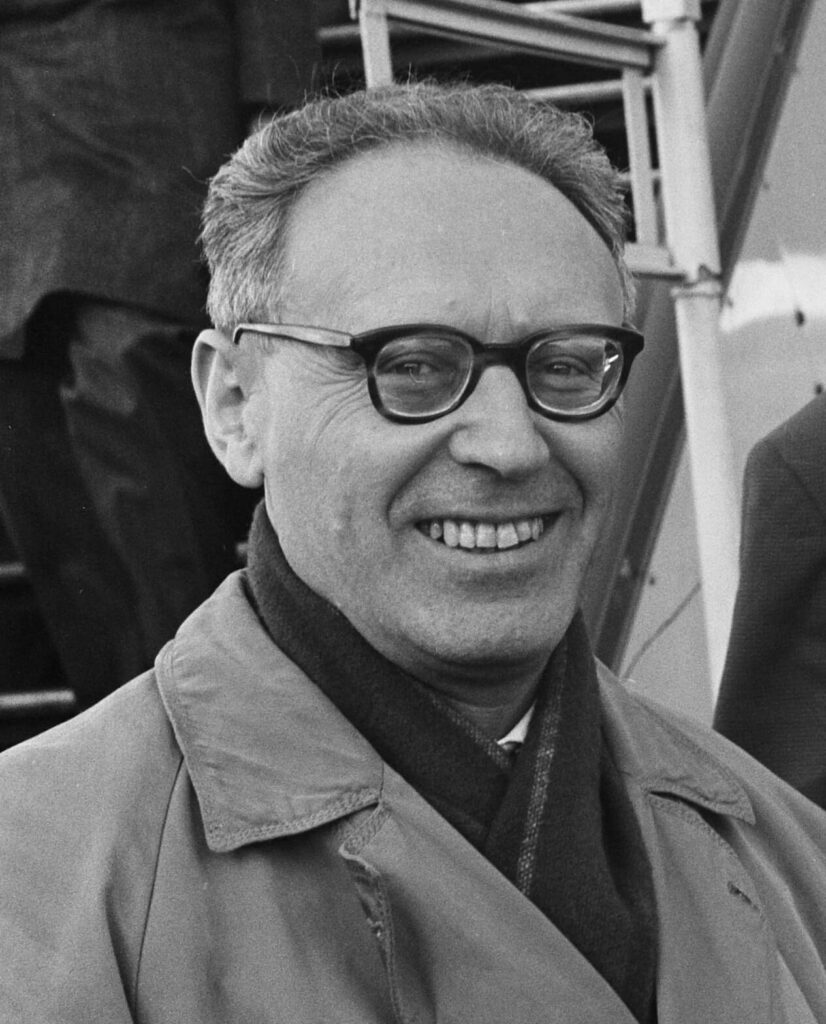Mikhail Botvinnik: The Patriarch of Soviet Chess
August 17, 2023
Mikhail Moiseyevich Botvinnik (1911-1995) stands as one of the titans of the chess world. Often referred to as the “Patriarch of the Soviet Chess School,” his influence extended far beyond his board victories; he laid the groundwork for the Soviet dominance in chess throughout much of the 20th century.

Mikhail Botvinik – source: Mikhail Moiseyevich Botvinnik (sr.wikipedia.org)
Early Life and Rise to Prominence
Born in Kuokkala, Grand Duchy of Finland (which was part of Russia at that time), Botvinnik showcased his talent for the game at an early age. By 16, he was already champion of Leningrad, and his career trajectory was set towards becoming one of the most influential figures in the world of chess.
World Champion and Dominance
Botvinnik’s approach to the game was distinctly scientific. He meticulously prepared for his matches and believed in the importance of physical fitness for chess players. This combination of rigorous training and discipline would later become a hallmark of the Soviet Chess School.
In 1948, after the death of World Champion Alexander Alekhine, Botvinnik emerged victorious in a tournament to decide the next world champion. This was the start of his reign at the top, which, with brief interruptions, lasted until 1963.
During his tenure as world champion, Botvinnik faced fierce competitors like Vasily Smyslov, Mikhail Tal, and Tigran Petrosian. He lost the title and regained it, showcasing his resilience and adaptability against the distinct styles of each of these challengers.
Legacy in Chess Education
Perhaps even more lasting than his championship reign was Botvinnik’s role in shaping the future of Soviet and world chess. Recognizing the need for systematic chess education, he founded his school, the Botvinnik Chess School, which produced legends like Garry Kasparov, Anatoly Karpov, and Vladimir Kramnik.
Botvinnik’s emphasis on a comprehensive approach to chess – studying openings deeply, mastering endgames, and maintaining physical health – became the standard for professional chess players.
Personal Beliefs and Character
Botvinnik, an electrical engineer by profession, was a staunch supporter of the Soviet system and often melded his scientific background with his chess teachings. He believed in the combination of innate talent and hard work, and he often advocated for a blend of human intuition with the precision of machine analysis in the game. This belief made him one of the early pioneers in computer chess.
In character, Botvinnik was known for his determination, discipline, and unwavering belief in his methods. He was not just a player but also a theorist, teacher, and a driving force behind the growth of chess as a respected discipline in the Soviet Union.
Legacy of a Chess Titan
Mikhail Botvinnik was not just a world chess champion; he was an institution. His teachings and methods continue to influence the world of chess. Through his deep analyses, comprehensive approach to preparation, and his commitment to mentoring the next generation, Botvinnik left an indelible mark on the chess world. Today, his legacy continues to inspire and guide chess players and enthusiasts worldwide.
